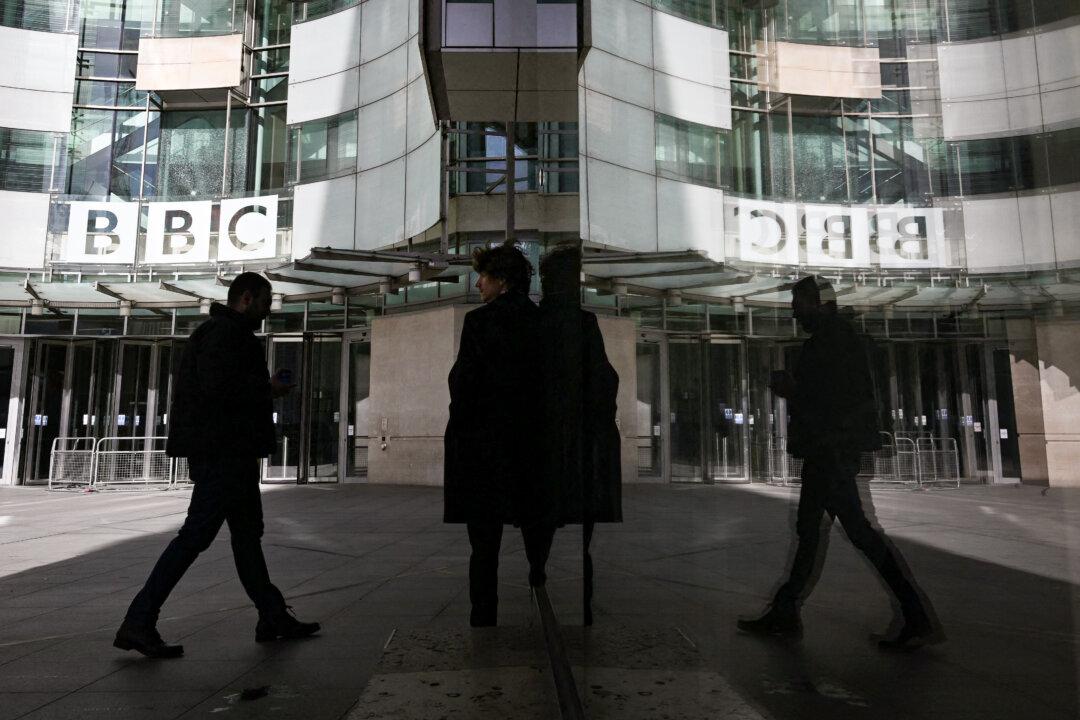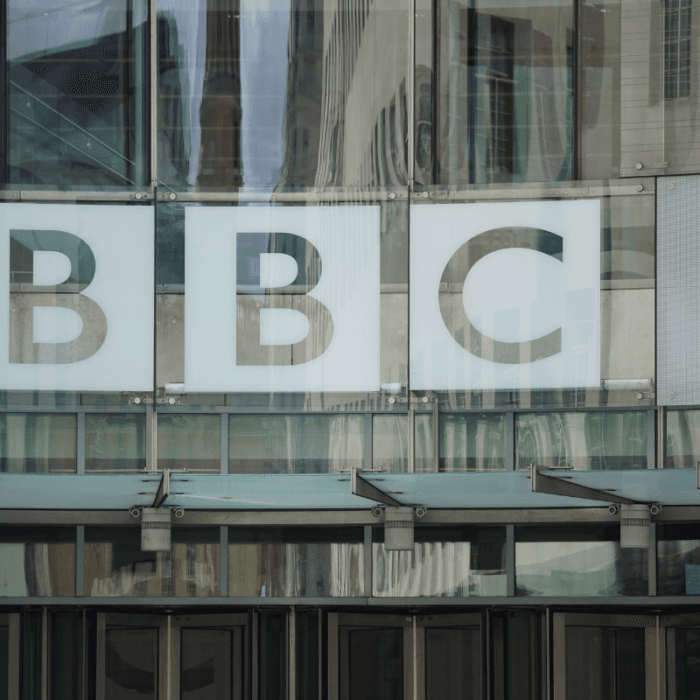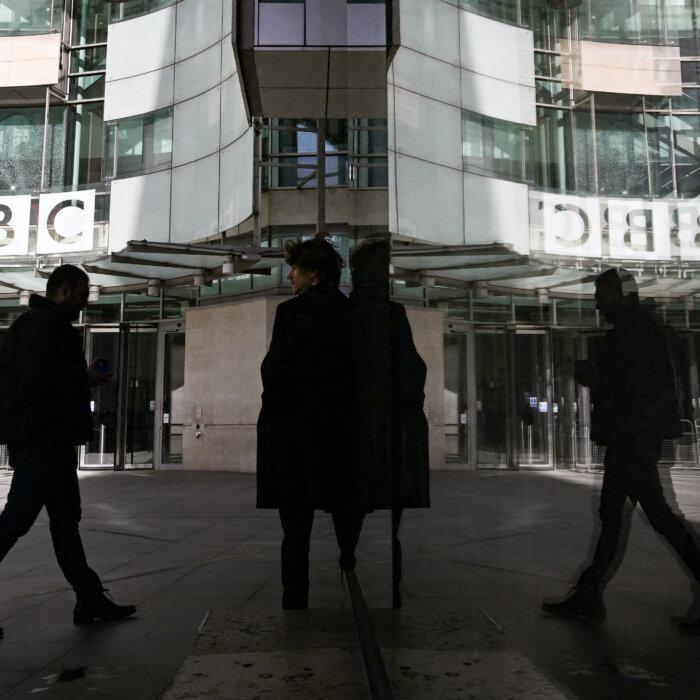The BBC has admitted that its reporting of civilian fatalities in the Gaza Strip was inaccurate because it included the deaths of Hamas terrorists.
The broadcaster’s Executive Complaints Unit (ECU) upheld a viewer’s complaint regarding a “News at Ten” bulletin on Jan. 14, with the network admitting on Thursday that “the result fell below the BBC’s standards of accuracy.”
Two minutes into the bulletin covering a vigil held in Tel Aviv to mark the 100th day since the start of the Israel–Hamas war, the reporter said, “And the number of civilians killed in Gaza has been huge—very nearly 24,000 dead, according to the Hamas-run Health Ministry, many of them women and children.”
The viewer complained that the report had given an inaccurate impression because it failed to make clear the number quoted included Hamas terrorists.
Initially, the complaint was rejected as the response had transcribed the passage with a full stop after “huge,” with the suggestion that the two sentences should be considered as “conveying distinct thoughts.”
However, the complaint was escalated and the ECU determined that viewers would probably have heard the passage as a single sentence.
“But even if a full stop were the correct punctuation, the passage gave the unintended impression that the figure from the Hamas-run Health Ministry consisted only of civilian dead, whereas it also included combatants, and the ECU thought this impression unlikely to have been counteracted by the reference in the studio introduction two minutes earlier to ’more than 23,000 people' having been killed in Gaza,” the BBC said in its judgment.
BBC Coverage of the Israel–Hamas War
This is not the first time the BBC has had to apologise for its coverage of the Israel–Hamas war.Accusations of Pro-Trans Bias
The BBC has also been criticised for its approach to reporting transgender issues.For Women Scotland told The Epoch Times that coverage on the nightly news programme “The Nine” had “leaned heavily” on pro-trans activists, lacked balance and accuracy, and failed to consider the opinions of medical experts.
This appears to be in line with the BBC’s style guide, which states, “Using appropriate language is an important part of how we portray people in our stories.” On the matter of gender, journalists should describe “a person born male who lives as a female” as a “transgender woman,” using the pronoun “she” and vice-versa.
Mr. Davie said that Mr. Webb’s comment “was a breach.”
“It’s quite a small thing. But it registered. It was just a sentence that wasn’t quite right. [...] I think that’s what it was, no more, no less. And to act on that quickly is the right thing,” he said in support of the ECU’s decision.
“The other thing is, we have to be kind and caring in this, and listen to people. And be nice,” he said.







